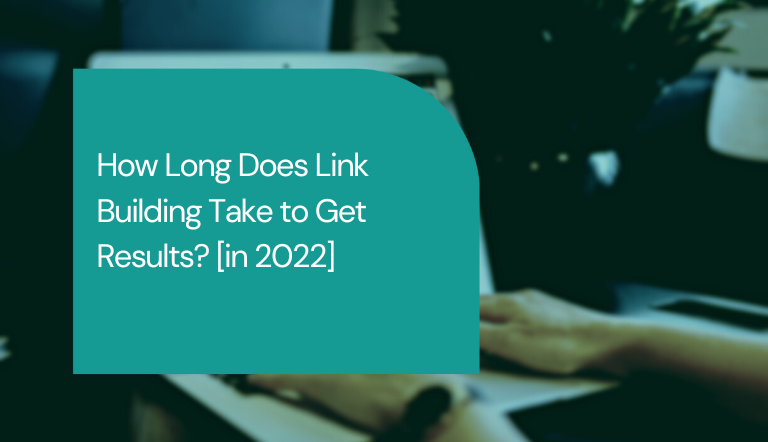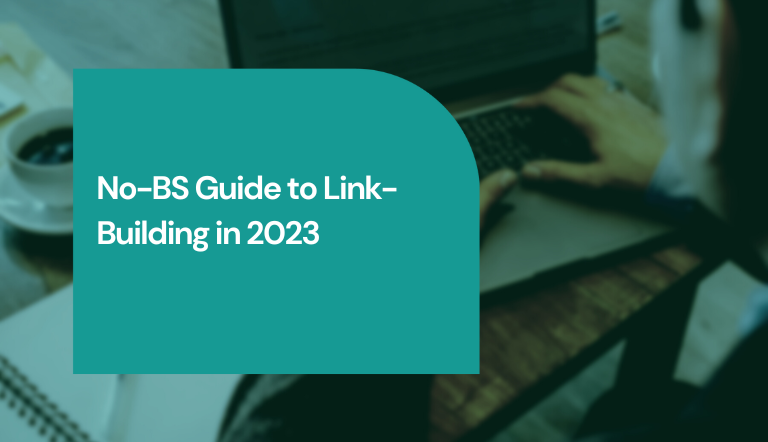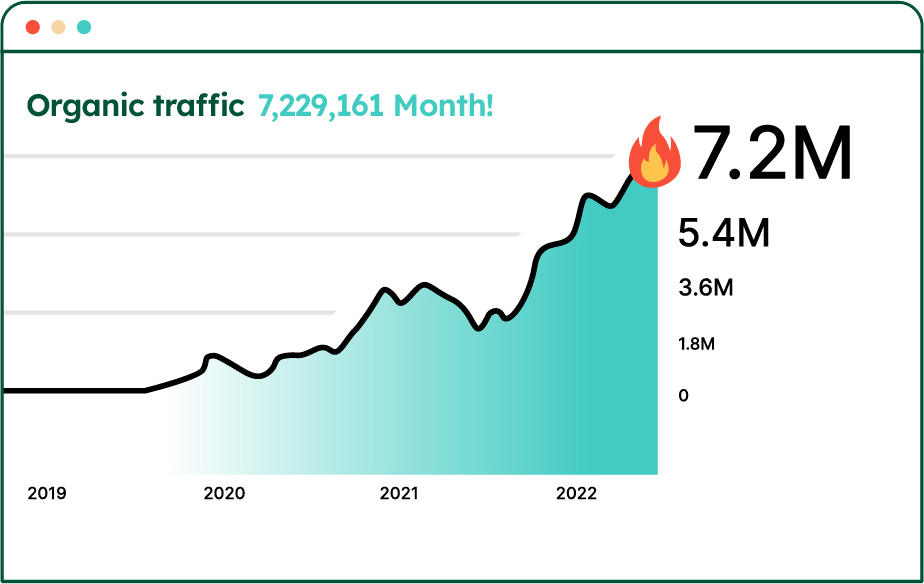Link building is one of the most effective tactics you can use to get your website to rank on Google.
But how many backlinks should you be building per month?
And how long will it take for your link-building efforts to bring you results?
In this article, we’ll answer those questions and more!
Let’s dig in.
How Long Does It Take for Link Building to Get Results?
It can take anything from 3 to 12 months for your link-building efforts to bear fruit.
The wide gap in-between these time periods is mainly because there are a ton of factors that impact how effective your link-building will be.
Consider the three scenarios below:
- Your website has been around for 5+ years and has a very strong backlink profile, very high-quality SEO content, and great on-page SEO. In such a case, if you build a handful of backlinks to one of your key pages, these backlinks will likely get you results within three months.
- Your website has been around for 1-2 years and has a decent backlink profile, decent content, and great on-page SEO. In such a case, link building will get you results from anywhere between four to eight months.
- Your website is fresh out of the oven with zero backlinks and almost no content. In such a case, link building will get you results within 12 months, plus-minus.
This, of course, is a generalization – there are a lot more factors that influence how long it takes for link-building to get results.
The examples above, though, should give you a birdseye view of how things are.
If you want to learn more about factors that influence link-building results, read below.
Factors That Influence How Long It Takes for Backlinks to Kick In
#1. Backlink Quality
The quality of your backlinks is probably one of the most impactful factors that can determine how long it’ll take you to rank.
Compare these two websites:
- Authority in your niche that drives 200,000+ monthly organic traffic from Google.
- Fresh out of the oven blog with almost no organic traffic or backlinks on its own.
A backlink from the first site is going to have a MUCH bigger impact on your rankings than a backlink from the second, which means you’ll be a lot more likely to rank faster.
Some things to look at when evaluating backlink quality are as follows:
- Website topical relevance. Is the website you’re building a link from topically related to yours? If you build a backlink from a site about Dungeons and Dragons to your accounting site, it won’t count for much.
- Page topical relevance. Is the page linking to your website topically related to whatever it’s linking to?
- Page backlinks. Does the page you’re getting a backlink from having its own backlinks?
- Website organic traffic. The more quality rankings a given website has, the more likely it is that a backlink from them is going to impact you positively.
- If the website is a link farm (or uses shady blackhat techniques). Link farms are websites created solely to sell backlinks. Since these sites have tens of thousands of outgoing links, these links don’t count for much.
- If the backlink is do-follow. No-follow or sponsored backlinks don’t carry any link juice.
#2. Backlink Quantity
Quantity is almost as important as quality.
The more backlinks you build to any given page, the more likely it is to rank faster.
If you’re targeting a competitive keyword and you’re on the same level in terms of content quality as your competitor, then the main ranking factor is going to be the number of backlinks.
If your page has 20 backlinks and your competitor has ten, then it’s very likely that you’ll be able to outrank them reasonably fast.
This, however, does not mean that you should compromise on your backlink quality.
A single high-quality backlink will always bring significantly better results than a thousand web 2.0 backlinks, forum backlinks, Fiverr links, or just conventional low-quality links.
#3. Topical Authority
Topical authority involves how comprehensively you cover the topics in your niche.
If you have, for example, 100 articles on accounting, you’re bound to do much better than a website that has ten posts on accounting, ten on CRM, ten on process management, and so on.
By comprehensively covering a topic, Google can see that your website is an authority in the niche, and is more likely to give more importance to your website’s backlinks.
#4. Level of Competition
Your website could be fast, high quality, with tons of good content, and a strong backlink profile, but if your competitors are simply doing everything better, you’ll have trouble outranking them.
If, for example, you’re building ten quality backlinks a month, and your #1 competitor is building 50, then there’s a very low chance that you will be able to get results from your link building and outrank your competitor.
Sometimes, it IS possible to rank without backlinks. Check out our article to learn more.
#5. Content Quality
No amount of backlinks is going to get you to rank if your blog content is of low quality (especially as of 2022, with Google’s recent helpful content update).
So, if you think your content is not up to par, we recommend focusing on building out a ton of quality articles before you start with your link-building operations.
Not sure what “quality content” even means? Here are several factors that determine whether or not an article is worthy of ranking on Google:
- Matching search intent. Does your article answer whatever questions the Googler has when looking up a query?
- Long-form and comprehensive. While not directly a ranking factor, a 2,000-word article is a lot more likely to rank than a 500-word one.
- Well-written. Is the post engaging? Written in correct English? Easy to follow and well structured?
- Following on-page SEO practices. This includes mentioning your target keyword in your H1 header, H2 header, and body text multiple times, having a lot of internal and external links, and so on.
Struggling with content quality? You can always outsource content creation to an expert or agency!
How Many Backlinks Should You Build Per Month?
The natural follow-up question to “how long does link building take” is how many backlinks should you be building per month.
The answer to this is pretty simple:
As long as the backlinks are of high quality, you should aim for building as many backlinks as you possibly can.
Anything from ten backlinks per month to 100 is a good goal to strive for.
For most businesses out there, though, five to 15 backlinks per month is a reasonable target. This is usually enough links to get you results within six to eight months without having a heavy strain on your marketing budget.
For a more in-depth answer to this question, check out these articles:
- How many backlinks to build per day?
- How many backlinks is it safe to build per month?





